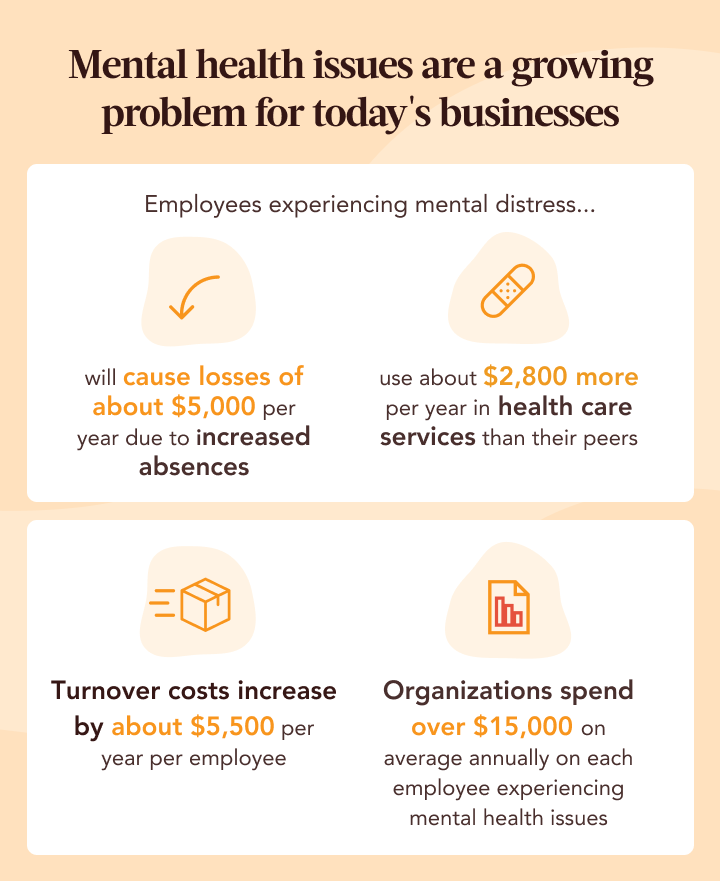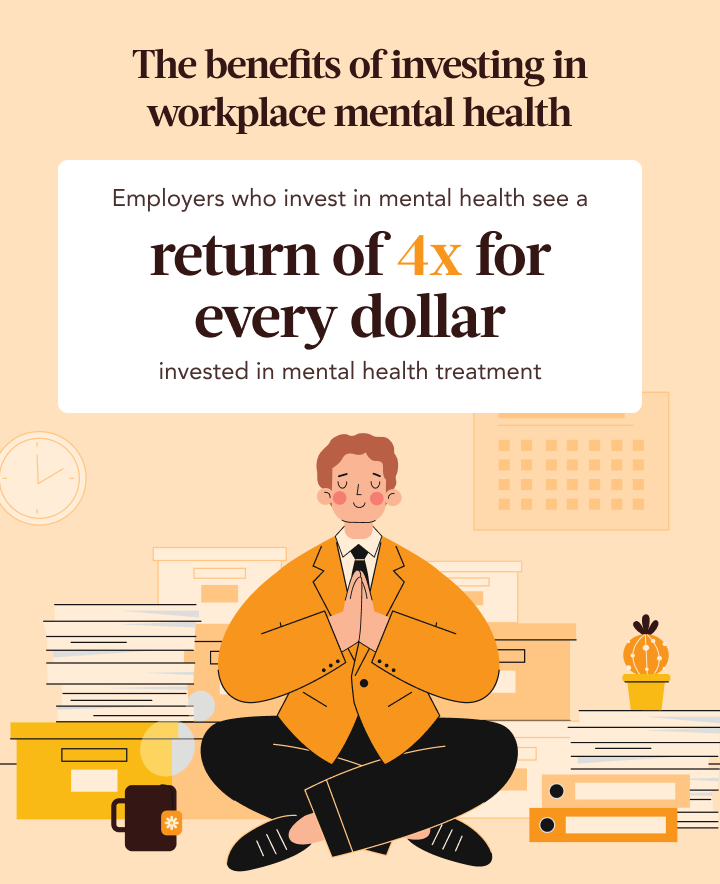How Investing in Mental Health Helps Businesses Thrive

The COVID-19 pandemic and its secondary effects have led to mental health difficulties for many–over 40% of Americans reported increased mental distress, and studies have found that the incidence of both anxiety and depression disorders have grown by more than 25%.
Just as individuals have suffered from increased stress and instability over the past several years, employers have faced a crisis too. The mental health challenges that employees face directly impact the businesses they work for via a complex spectrum of factors.
Mental health issues are a growing problem for businesses. As members of the workforce suffer from mental health issues, businesses experience increased absenteeism, reduced engagement, declines in productivity and profits, and increases in both health care and insurance costs.
The burden of untreated mental health concerns across the workplace can be very high. In a study by the National Safety Council and NORC at the University of Chicago, researchers found that employees who are experiencing mental distress will cause losses of about $5,000 per year due to increased absences, and use, on average, over $2,800 more in health care services per year than their peers.
Furthermore, turnover costs can also be expected to increase by about $5,500 per year per employee. The analysis found that organizations spend over $15,000 on average annually on each employee experiencing mental health issues.
As the research shows, prioritizing employee mental health and wellness is a crucial and costly issue for today’s businesses.

The benefits of investing in workplace mental health
While the burden of untreated mental health concerns only grows, on the flipside, effective treatment options can actively support, engage, and fulfill the potential of your workforce.
And the benefits are measurable. Research shows that employers who invest in mental health see a return of 4x for every dollar invested in mental health treatment. When employees receive effective treatment, businesses reduce their total medical costs, increase productivity, lower absenteeism and decrease disability costs.
In addition to the monetary cost of managing mental health issues across the workplace, these issues significantly impact the organization in many additional ways, such as turnover, safety occurrences, workplace culture, and the working environment.

How Frankly can help
Today’s employees are increasingly seeking mental health and wellness support from their employers. For businesses facing budget cuts and a tight labor market, implementing a mental health and mindfulness program can be a game-changer.
When employees have access to the tools they need to improve their well-being, employers have the potential to benefit across many dimensions, from increased engagement and productivity, to reduced burnout and absenteeism, a higher level of job satisfaction, and improved employee retention.
Frankly’s EAP offers an innovative, evidence-based mental health and wellness solution that supports employees, while delivering cost savings for employers. Our offering provides employees with direct, flexible access to the right mix of mental health coaching, therapy, and psychiatry services for their needs.
Implementing Frankly’s comprehensive mental health and mindfulness program can deliver substantial value for employers, while empowering employees to thrive and accomplish their goals. To find out more, book a 15 minute demo.

Comments ()